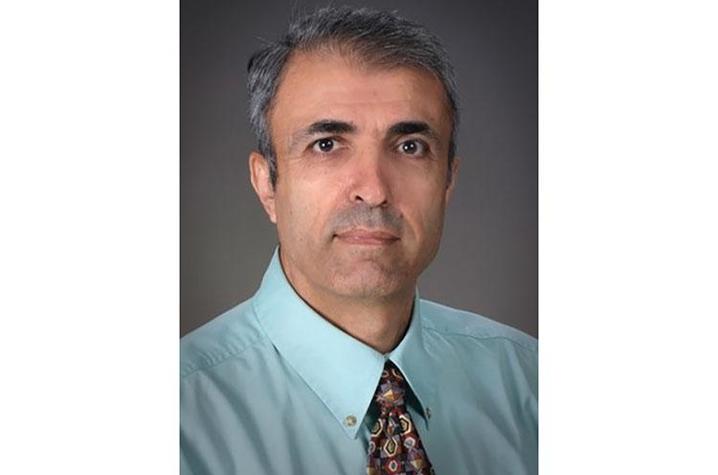UK Veterinarian Receives National Excellence Award

LEXINGTON, Ky. (Dec. 20, 2018) — At the recent annual convention of the American Association of Veterinary Laboratory Diagnosticians, University of Kentucky’s Dr. Erdal Erol received the 2018 BIOMIC Excellence in Diagnostic Veterinary Microbiology Award.
This national award recognizes distinguished scientists for research accomplishments in the field that can be applied for the betterment of veterinary medicine.
Erol has led the diagnostic microbiology unit of the UK Veterinary Diagnostic Lab since 2010. He has served as principal investigator or co-investigator on several research projects that have added to the understanding and knowledge base of bacterial infectious diseases in animals, some of which have been devastating to the livestock and horse industries. His seminal work to better understand the etiology of nocardioform placentitis in the horse has helped to better characterize the epidemiology and pathogenesis of this mysterious agent that results in late-term fetal loss, leading to ideas for better management and preventive modalities.
“I believe Dr. Erol ranks as one of the top veterinary microbiologists in the United States conducting and participating in research to advance diagnostic methods,” said Craig Carter, UK VDL director. “His contributions are lauded by scientists around the world, and his work truly has advanced the field of bacteriology in veterinary medicine.”
Erol received his doctor of veterinary medicine degree from Firat University in Turkey, a microbiology master’s degree from the University of Missouri and a doctoral degree in microbiology from Texas A&M University. Before coming to UK, Erol was an assistant professor of molecular biology at Texas A&M and an infectious disease diagnostician at the Texas A&M Veterinary Medical Diagnostic Laboratory from 2003 to 2010.
In addition to his diagnostic casework at UK, Erol led an effort to fund, purchase and implement MALDI-TOF for bacteriology, revolutionizing the VDL’s ability to identify pathogenic bacteria, reducing turnaround times for clients by a full day. MALDI-TOF, formally matrix assisted laser desorption/ionization-time of flight, has been used in human medicine for many years. Now, veterinary labs across the country are using the technology to aid in bacteria identification.
The UK VDL is part of the UK College of Agriculture, Food and Environment. The lab diagnoses animal diseases and performs tests which safeguard the health of Kentucky’s animal population. The lab helps identify infectious diseases, identify regulatory diseases, provides the means to meet export sales requirements and provides an early warning system for impending epidemics. It is a full-service laboratory with a heavy caseload, often involving 20 or more large animals for necropsy in a single day.




